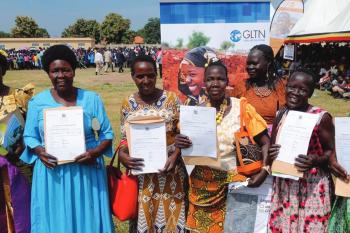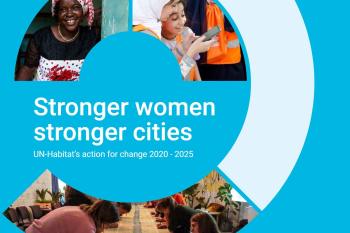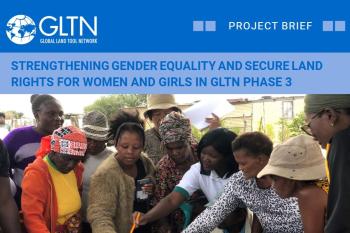
Read More
Gender Strategy for Land-at-Scale Uganda
Women’s Land Rights (WLRs) are fundamental human rights, foundational to gender equality and women’s dignity and instrumental in improving food security, effective climate action, poverty eradicati

This paper was produced as part of the Arab Land Initiative through a collaboration of the Urban Training and Studies Institute (UTI), the Global Land Tool Network (GLTN), and the United Nations Human Settlements Programme (UN-Habitat).
It summarizes the findings of a Palestine land sector evaluation that employed both quantitative and qualitative methodologies to gather, process, and analyse primary and secondary data on land management. Primary data was collected using questionnaires and key informant interviews with respondents from government, civil society, and academia.
The study assesses the country's capacities with regard to good land governance by evaluating its performance on the core land administration functions of land tenure, land valuation, land use, land development, and land conflict resolution.
Additionally, it maps the existing learning offer on land governance, identifying the key institutions and the courses available in Palestine. A set of conclusions are recommendations complements the analysis.

Women’s Land Rights (WLRs) are fundamental human rights, foundational to gender equality and women’s dignity and instrumental in improving food security, effective climate action, poverty eradicati

This publication presents a summary of UN-Habitat’s gender equality impact over the past five years, in line with the Beijing reporting cycle.

GLTN’s institutional commitment to gender equality and secure land rights for women and girls has been at the core of its work since inception in 2006.